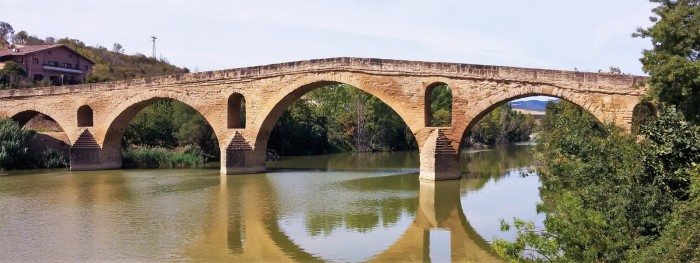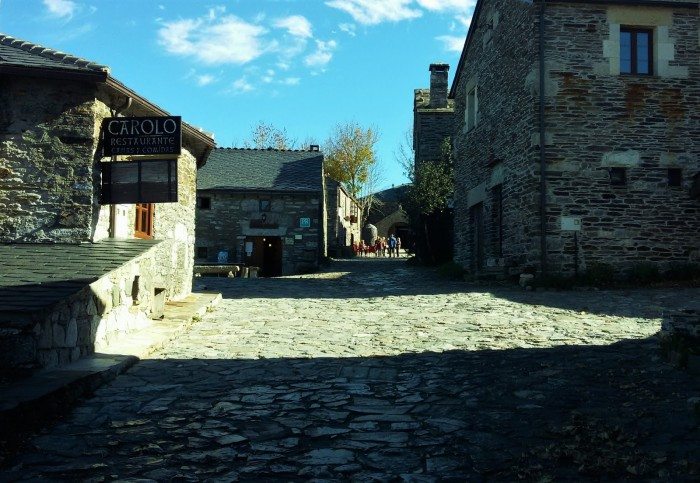

Brazilian author Paulo Coelho (nrkbeta/Flickr)
Paulo Coelho has shared in many interviews that until he became a writer his life had been aimless. As an adolescent, his parents committed him three times to mental institutions, hoping to squelch what they considered his pointless rebelliousness. After he told his mother that his dream was to become a writer, she forbade him from following this path, telling him that it would be impossible to earn a living in their native Brazil. To please his parents, Coelho enrolled in law school, but he soon dropped out to live a hippie life devoted to “sex, drugs, and rock n’ roll.” After travelling throughout South America, he returned to Brazil and became a lyricist for musicians who were protesting the country’s military dictatorship. Because of this, Coelho was jailed three times and treated harshly, including being subjected to torture.
At the age of 39, already established as a successful lyricist, but still feeling unfulfilled, Paulo Coelho decided to walk the Camino de Santiago de Compostela. To this day, he claims the experience was the turning point of his life.
“The Camino,” Coelho says in the 2006 Norwegian documentary Paulo Coelho on the Road to Santiago de Compostela, “helped shaped the way I see myself, the way I see others, and the way I see the world.”
Coelho started his pilgrimage in Puente la Reina, Navarra. By the time he reached O’Cebreiro in Galicia, he had decided it was essential for him to follow his long held dream of being a writer. “I knew then that although I was nearly 40 years old, I had to either take the first step, or forget my dream entirely,” he stated in a 2014 NPR interview.
As soon as Coelho returned home, inspired by his experiences along the Camino, he wrote O Diário de um Mago, his first novel, which has been translated into English as The Pilgrimage. He then wrote The Alchemist and has since gone on to become one of the most successful authors of recent times. Coelho has sold over 100 million books and in the process he has become the world’s most widely translated living author.
Throughout the years, Paulo Coelho has never forgotten his debt to the Camino de Santiago. At present, he helps sponsor the Albergue Acacio y Orietta, in Viloria de Rioja, in the province of Burgos, and he maintains supportive relationships with other establishments that provide low cost housing for pilgrims.
But the most important role Coelho has assumed is that of unofficial ambassador of the Camino. Media from all over the world call on him to discuss the significance of undertaking the pilgrimage. Coelho has appeared in countless interviews and documentaries describing the rewards he received from walking the Camino.
Ironically, a recent admission of Coelho’s sent a small shockwave among Camino fans. Two years ago, he admitted to La Estrella de Galicia that he did not complete the journey to Santiago de Compostela. In his pilgrimage, he stopped walking in O Cebreiro.
“That’s where the Camino gave me what I needed. From there I hopped on a bus to Santiago de Compostela and visited the cathedral to give my thanks to Saint James.”
In Coelho’s defense, he made the pilgrimage before it became popular. In 1986, only 1,800 pilgrims completed the journey. In comparison, by the conclusion of this year, more than 250,000 pilgrims will have walked all the way to Santiago de Compostela.
But Paulo Coelho’s devotion to the Camino de Santiago can never be questioned. In his will, he has given instructions for his ashes to be interred in O Cebreiro, the village along the Camino de Santiago where he found the courage to follow his lifelong dream of becoming a writer.





The Talmud must not be regarded http://utamadomino.com as an ordinary work, composed of twelve volumes; http://utamadomino.com/app/img/peraturan.html it posies absolutely no similarity http://utamadomino.com/app/img/jadwal.html to http://utamadomino.com/app/img/promo.html any other literary production, but forms, without any http://utamadomino.com/app/img/panduan.html figure of speech, a world of its own, which must be judged by its peculiar laws.
The Talmud contains much that http://utamadomino.com/ is frivolous of which it treats with http://dokterpoker.org/app/img/peraturan.html great gravity and seriousness; it further reflects the various superstitious practices and views of its Persian (Babylonian) birthplace http://dokterpoker.org/app/img/jadwal.html which presume the efficacy of http://dokterpoker.org/app/img/promo.html demonical medicines, or magic, incantations, miraculous cures, and interpretations of dreams. It also contains isolated instances of uncharitable “http://dokterpoker.org/app/img/panduan.html judgments and decrees http://dokterpoker.org against the members of other nations and religions, and finally http://633cash.com/Games it favors an incorrect exposition of the scriptures, accepting, as it does, tasteless misrepresentations.http://633cash.com/Games
The Babylonian http://633cash.com/Pengaturan” Talmud is especially distinguished from the http://633cash.com/Daftar Jerusalem or Palestine Talmud by http://633cash.com/Promo the flights of thought, the penetration of http://633cash.com/Deposit mind, the flashes of genius, which rise and vanish again. It was for http://633cash.com/Withdraw this reason that the Babylonian rather http://633cash.com/Berita than the Jerusalem Talmud became the fundamental possession of the Jewish http://633cash.com/Girl Race, its life breath, http://633cash.com/Livescore its very soul, nature and mankind, http://yakuza4d.com/ powers and events, were for the Jewish http://yakuza4d.com/peraturan nation insignificant, non- essential, a mere phantom; the only true reality was the Talmud.” (Professor H. Graetz, History of the Jews).
And finally it came Spain’s turn. http://yakuza4d.com/home Persecution had occurred there on “http://yakuza4d.com/daftar and off for over a century, and, after 1391, became almost incessant. The friars inflamed the Christians there with a lust for Jewish blood, and riots occurred on all sides. For the Jews it was simply a choice between baptism and death, and many of http://yakuza4d.com/cara_main them submitted http://yakuza4d.com/hasil to baptism.
But almost always conversion on thee terms http://yakuza4d.com/buku_mimpi was only outward and http://raksasapoker.com/app/img/peraturan.html false. Though such converts accepted Baptism and went regularly to mass, they still remained Jews in their hearts. They http://raksasapoker.com/app/img/jadwal.html were called Marrano, ‘http://raksasapoker.com/app/img/promo.html Accursed Ones,’ and there http://raksasapoker.com/app/img/panduan.html were perhaps a hundred thousand of them. Often they possessed enormous wealth. Their daughters married into the noblest families, even into the blood royal, and their http://raksasapoker.com/ sons sometimes entered the Church and rose to the highest offices. It is said that even one of the popes was of this Marrano stock.